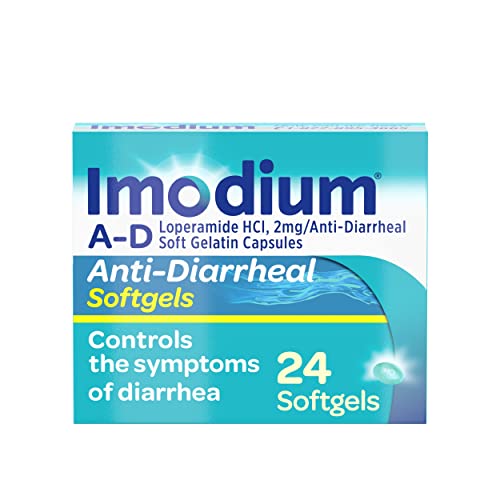Buying Guide for Antidiarrheal Medications
Antidiarrheal medications are essential for managing sudden bouts of diarrhea, whether caused by food poisoning, infections, or digestive disorders. They work by slowing down the movement of the gut, allowing the body to absorb more fluids and nutrients. With a range of options available over-the-counter (OTC) and by prescription, choosing the right antidiarrheal medication can help you recover quickly and avoid dehydration or discomfort. This guide outlines the benefits and factors to consider when purchasing these medications. Explore our wide range of antidiarrheal medications to find the best options for you.
Benefits of Antidiarrheal Medications
Fast Relief from Symptoms
Antidiarrheal medications provide quick relief from the frequent, watery stools associated with diarrhea. Many OTC options like loperamide can begin to work within hours, allowing you to regain control over your body and resume daily activities with minimal disruption.
Prevention of Dehydration
One of the major risks of diarrhea is dehydration, especially when fluid loss is rapid and severe. Antidiarrheals help slow down bowel movements, which gives your body more time to absorb water and electrolytes, reducing the risk of dehydration.
Variety of Treatment Options
From OTC medications like loperamide and bismuth subsalicylate to prescription treatments for more severe conditions, there’s an antidiarrheal medication suited for various causes and severity levels. This variety ensures that individuals can find the right treatment for their specific needs, whether it’s a one-time bout of diarrhea or a chronic condition.
Safe and Effective for Travel
Travelers often experience "traveler’s diarrhea" due to unfamiliar food or water. Carrying antidiarrheal medications ensures you're prepared to handle unexpected digestive issues during trips, allowing you to enjoy your travel plans without the stress of frequent bathroom breaks.
Factors to Consider While Buying Antidiarrheal Medications
Type of Diarrhea
It’s crucial to consider the underlying cause of diarrhea when selecting a medication. OTC antidiarrheals like loperamide are great for non-infectious diarrhea, but they should not be used for diarrhea caused by infections, as they can slow down the expulsion of harmful bacteria or viruses.
Duration of Symptoms
If diarrhea lasts for more than two days, it’s important to see a healthcare provider. While antidiarrheal medications can provide immediate relief, long-term or chronic diarrhea may indicate a more serious issue that requires different treatment, such as a prescription medication or further diagnostic testing.
Potential Side Effects
Some antidiarrheal medications may cause side effects such as constipation, dizziness, or bloating. It’s essential to read the label for possible side effects and assess how they might impact your overall comfort or health, especially if you have other underlying conditions. Explore our selection of antidiarrheal medications with no side effects.
Interactions with Other Medications
If you’re taking other medications, consult your doctor or pharmacist before using an antidiarrheal. Some ingredients may interact with other medications, such as antibiotics or heart medications, potentially reducing effectiveness or causing adverse reactions.
Conclusion
Antidiarrheal medications offer quick and effective relief for managing the uncomfortable symptoms of diarrhea. When choosing the right product, consider the cause of the diarrhea, duration of symptoms, potential side effects, and interactions with other medications. With the right choice, you can ensure a fast recovery and avoid the potential complications of untreated diarrhea. After reading hundreds of reviews, we recommend top antidiarrheal medications.





























